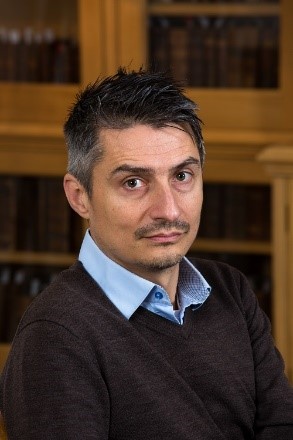Diffusion Schrödinger Bridges with Applications to Score-Based Generative Modelling
When and Where
Speakers
Description
Progressively applying Gaussian noise transforms complex data distributions to approximately Gaussian. Reversing this dynamic defines a generative model. When the forward noising process is given by a Stochastic Differential Equation (SDE), Song et al. (2021) demonstrate how the time inhomogeneous drift of the associated reverse-time SDE may be estimated using score-matching. A limitation of this approach is that the forward-time SDE must be run for a sufficiently long time for the final distribution to be approximately Gaussian. In contrast, solving the Schrödinger Bridge problem (SB), i.e. an entropy-regularized optimal transport problem on path spaces, yields diffusions which generate samples from the data distribution in finite time. We present Diffusion SB (DSB), an original approximation of the Iterative Proportional Fitting (IPF) procedure to solve the SB problem, and provide theoretical analysis along with generative modeling experiments. The first DSB iteration recovers the methodology proposed by Song et al. (2021), with the flexibility of using shorter time intervals, as subsequent DSB iterations reduce the discrepancy between the final-time marginal of the forward (resp. backward) SDE with respect to the prior (resp. data) distribution. Beyond generative modeling, DSB offers a computational optimal transport tool as the continuous state-space analogue of the popular Sinkhorn algorithm.
Joint work with Valentin De Bortoli, James Thornton & Jeremy Heng.
About Arnaud Doucet
 Arnaud Doucet obtained his PhD in Information Engineering in 1997 from Paris-Sud University. From 1998 to 2011, he has held faculty positions in engineering, computer science and statistics at The University of Melbourne, The University of Cambridge, The University of British Columbia and The Institute of Statistical Mathematics in Tokyo. He joined the Department of Statistics of The University of Oxford in 2011 where he is now Professor. Since 2019, he has also been working as as Research Scientist at Google DeepMind. He was an IMS Medallion lecturer in 2016, has been elected an IMS Fellow in 2017 and has received the Guy Medal in Silver of the Royal Statstical Society in 2020.
Arnaud Doucet obtained his PhD in Information Engineering in 1997 from Paris-Sud University. From 1998 to 2011, he has held faculty positions in engineering, computer science and statistics at The University of Melbourne, The University of Cambridge, The University of British Columbia and The Institute of Statistical Mathematics in Tokyo. He joined the Department of Statistics of The University of Oxford in 2011 where he is now Professor. Since 2019, he has also been working as as Research Scientist at Google DeepMind. He was an IMS Medallion lecturer in 2016, has been elected an IMS Fellow in 2017 and has received the Guy Medal in Silver of the Royal Statstical Society in 2020.


